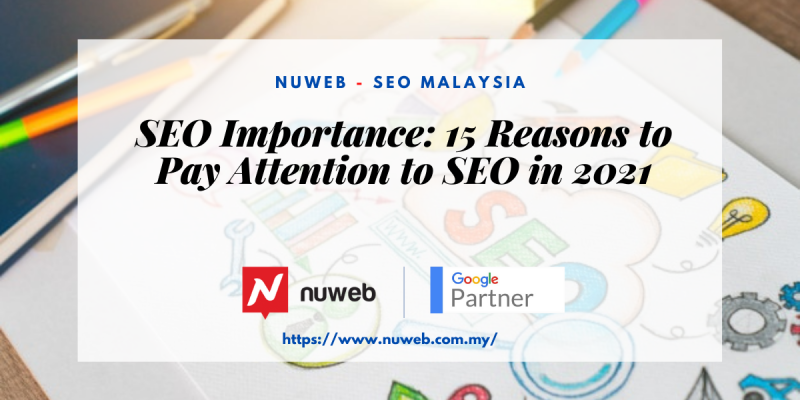Why is SEO important?
This is a common issue posed to SEOs and digital marketers both within and outside of marketing businesses. SEO has been around for more than a decade and a half, and it currently accounts for a significant part of traffic for popular websites.
Organic search, according to stridec.com study, is the primary driver of Web traffic for most sectors and a significant component of revenue. The effectiveness of SEO in increasing organic traffic is clear.
Organic search use and share are outpacing those of other channels. Organic and sponsored online traffic prevailed in 2019. As organic search traffic continues to exceed other search traffic, SEO for Google and other search engines will become increasingly more important in 2021.
SEO’s Importance in 2021
Use this SEO guide and these fifteen principles to better understand SEO and its role in marketing.
Please share your channel. Organic search accounts for 53% of all website traffic (source: Organic Channel report). By far the majority traffic to websites comes from organic search.
Look for the word “Share.” SEO provides for 83 percent of search engine traffic on average, while sponsored search accounts for 17 percent.
Share of Attention. Despite the fact that organic search produces the bulk of traffic, most firms invest more in paid search. Paid search accounted for 15% of all web searches in 2019.
Long-Term Traffic equity is a concept used to represent the long-term worth of traffic. While SEO does need an initial investment of resources, once accomplished, SEO rankings have a lengthy shelf life.
Natural traffic is created. SEO traffic has no media expenses and may provide a substantial ROI – much higher than most other channels. Search engines prioritize and reward content that is relevant to readers and created for people rather than bots. Focus on optimizing for your target audience.
Structure. Proper SEO helps to organize your website and makes it easier for people to browse and transact.
Alignment. Marketing is most effective when all channels, including organic search, are devoted to the same subject. Multiple channel alignment improves overall performance.
The brand’s ascension SEO success assures a share of voice on search engine results pages, which is essential for developing brand trust.
Conversion. SEO traffic usually converts better than other channels since SEO rankings generally reflect confidence from search engines. While sponsored search produces results quickly, it lacks authenticity and should consequently be utilized in conjunction with SEO strategies.
Synergy should be directed. Your other marketing channels create demand for people to seek for products and services like yours on search engines. If your website is not there to gather the demand you spent money building, your rivals will.
Think about the market. Organic search is a crucial component of the research process, especially for products or services that have a long sales cycle. People use search engines to produce a list of possible candidates for a product or service, then use them again to gather comments and reviews to help them make decisions.
Search engines and social media. SEO works in tandem with social media; some queries are more sensitive to “fresh results” and social signals, which can affect and decide search result placement. Social media may help define your brand’s online presence and drive visitors to your website.
Research. SEO research allows you to understand user interest and intent in order to produce content that addresses and captures that purpose.
Content Distribution Putting emphasis on SEO and real link building results in the production of useful, helpful content that people want to share, resulting in digital word of mouth.
Global Presence. SEO has a worldwide reach and may even provide dynamic translation and localization, attracting new and unexpected clientele from around the world.
For more information about SEO Malaysia, please visit https://www.nuweb.com.my/



